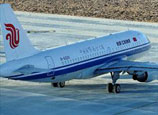
On Sunday, Japanese Prime Minister Yoshihiko Noda criticized the main opposition Liberal Democratic Party's campaign pledge pertaining to the territorial dispute when he appeared on Japan's Asahi Television.
The LDP, led by its new hard-line president and former prime minister Shinzo Abe, vowed to base regular government staff on the Diaoyu Islands.
Noda warned that Abe's proposal "may lead to further escalations", and said his opponent has no awareness that the tough situation may "endanger Japan-China ties".
Damaged by the dispute over the East China Sea islands, which have belonged to China for centuries, bilateral ties are said to be witnessing their toughest time since the normalization of the two countries' diplomatic relations in 1972.
Politicians who favor nationalism is one reason for fewer Japanese feeling friendly about China, because nationalism plays a very important role in Japan, said Feng Wei, a professor of Japanese studies at Fudan University in Shanghai.
"There are not so many differences in campaign platforms among different parties in Japan, as they fear that they will lose certain supporters if they make the platforms too clear, but playing up nationalism is safe and effective," Feng said.
Since the islands dispute flared up in September, the Chinese government has sent maritime surveillance ships and fishery administration vessels to the waters off the Diaoyu Islands to assert sovereignty and provide services to Chinese fishermen operating in the area.
Japanese media continued to quote the Japanese Coast Guard's claim that Chinese ships were "entering territorial waters".
"Japanese media's frequent reporting sensationalized China's regular patrols in the waters was aimed at presenting them as victim to the international community," said Zhang Haiwen, deputy director of the China Institute for Marine Affairs.
Japan's media are also to blame for the Japanese public's feelings toward China, as they often overstate China's regular maritime patrols and drilling as "threats to Japan" so that they can attract more readers and get better sales, Feng Wei added.

















 Record number of hopefuls sit annual civil service exam
Record number of hopefuls sit annual civil service exam


![]()
